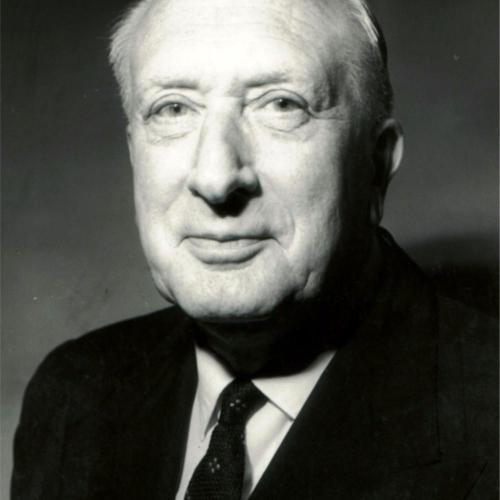William Walton - All This Time
'Verbum caro factum est.'
This night there is a chid yborn
That sprang out of Jesse's thorn;
We must sing and say thereforn
All this time this song is best:
'Verbum caro factum est.'
Jesus is the childes name
And Mary mild is his dame;
All our sorrow shall turn to game:
All this time this song is best:
'Verbum caro factum est.'
It fell upon high midnight:
The starres shone both fair and bright;
The angels sang with all their might
All this time this song is best:
'Verbum caro factum est.'
Now kneel we down on our knee
And pray we to the Trinity
Our help, our succour for to be;
All this time this song is best:
'Verbum caro factum est.'
Song Description:
edit soundcloudSoundCloud:
edit soundcloudMore William Walton lyrics
William Walton - Make We Joy Now in This Fest
Make we joy now in this fest In quo Christus natus est Eya, eya A Patre Unigenitus Is through a maiden come to us: Sing we of Him and say 'Welcome' Veni,
William Walton - Under the Greenwood Tree
Under the greenwood tree Who loves to lie with me And turn his merry note Unto the sweet bird's throat Come hither, come hither, come hither: Here shall he see No
William Walton - A song for the Lord Mayor's table
Let all the Nine Muses lay by their abuses Their railing and drolling on tricks of the Strand To pen us a ditty in praise of the City Their treasure, and pleasure, their pow'r and
William Walton - The contrast
In London I never knew what I'd be at Enraptured with this, and enchanted by that I'm wild with the sweets of variety's plan And life seems a blessing too happy for man
William Walton - Holy Thursday
'Twas on a holy Thursday, their innocent faces clean The children walking two and two, in red and blue and green: Gray-headed beadles walked before, with wands as white as snow
William Walton - Black Mrs. Behemoth
In a room of the palace Black Mrs Behemoth Gave way to wroth And the wildest malice Cried Mrs Behemoth "Come, come Come, court lady Doomed like a moth
William Walton - Through Gilded Trellises
Through gilded trellises Of the heat, Dolores Inez, Manuccia Isabel, Lucia Mock Time that flies "Lovely bird, will you stay and sing Flirting your sheened wing,-
William Walton - The Wind's Bastinado
The wind's bastinado Whipt on the calico Skin of the Macaroon And the black Picaroon Beneath the galloon Of the midnight sky Came the great soldan In his
William Walton - Tango-Pasodoble
When Don Pasquito arrived at the seaside Where the donkey's hide tide Brayed, he Saw the bandito Jo in a black cape Whose slack shape waved like the sea -
William Walton - Rose Castles
Rose Castles Those bustles Beneath parasols seen! Fat blondine pearls Rondine curls Seem Banncrols sheen The brave tartan Waves' Spartan Domes (Crystal
YouTube
William Walton
